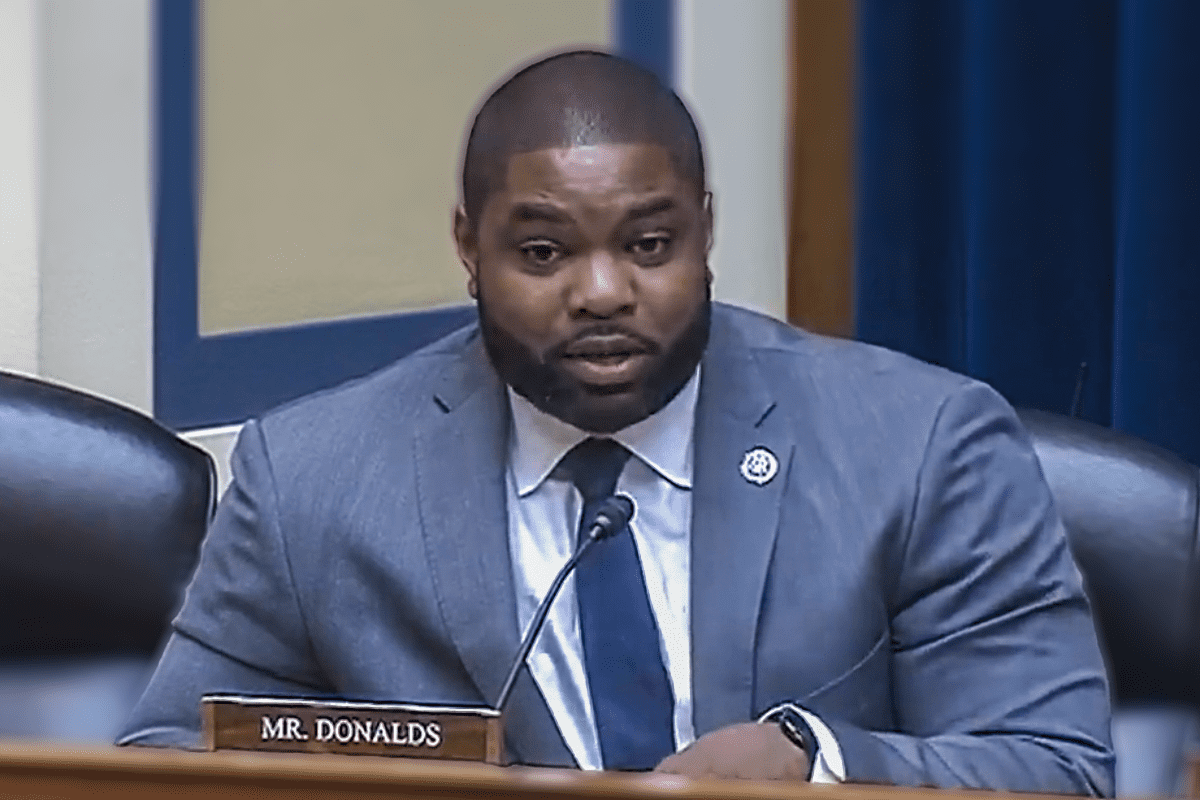Byron Donalds Grills Panel on CRT in Florida Math Textbooks: “Should we be Talking About Implicit Bias in Mathematics?

May 20, 2022 Updated 9:53 A.M. ET
WASHINGTON (FLV) – U.S. Rep. Byron Donalds, R-FL, grilled panelists Thursday on whether Critical Race Theory should be allowed in school textbooks.
Donalds defended the Florida Department of Education’s decision to reject 41% of submitted math textbooks because they included critical race theory and topics that the department said attempts to “indoctrinate” students.
“If we’re going to talk about history, let’s talk about history but if we’re going to bring in subjective material into the classroom, that is the problem that has some parents upset in the United States,” Donalds said. “That is not a free speech issue because students are a captive audience. They don’t get to leave.”
Donalds shared with the panelists four examples of Critical Race Theory found in the rejected math textbooks. He asked the group if this material should be in math textbooks. The exchange took place at a House subcommittee hearing about free speech.
“Just because something says something about bias or racial prejudice, as the professor has said, we can’t just remove that because we’re trying to talk about something that can make some people feel uncomfortable,” said Panelist James Whitfield.
Examples in the rejected Florida math textbooks include bar graphs teaching students to measure racial prejudice by age. Another graph has students measure racial prejudice by political identification. These examples teach students about the Implicit Association Test. It is a test used to prescribe ‘implicit associations’ regarding race and gender.
CONGRESSMAN DONALDS: ”Should this bar graph talking about implicit bias or racial bias be included in a mathematics textbook, not just in the state of Florida, but in any state in the union?”
DR. WHITFIELD: “Do we agree that racial prejudice exists?”
CONGRESSMAN DONALDS: “Dr. Whitfield, the question is should this be in a mathematics textbook?”
DR. WHITFIELD: “Is there math in this textbook? Is disseminating a bar graph part of a student learning math?”
CONGRESSMAN DONALDS: “Should we be talking about implicit bias in mathematics or should we be talking about math skills?”
DR. WHITFIELD: “I would dare say they are learning math skills. It just so happens that, again, this may be something that certain people view as uncomfortable. But racial prejudice is a real thing and I daresay our students get that. They understand that. Just because something says something about bias or racial prejudice, as the professor has said, we can’t just remove that because we’re trying to talk about something that can make some people feel uncomfortable.”
Panelist Suzanne Nossel called the Florida examples “inappropriate.”
“I saw this graph and I found it surprising and frankly inappropriate for a math textbook. I thought there was a risk that this was going to stoke division, detract from the lesson,” Nossel said. “Whether the entire panoply of math books should have been rejected for this one chart I think is a different question.”
You can watch the full exchange here.
Gov. Ron DeSantis earlier this year signed into law Florida’s “Stop W.O.K.E Act.” Under the law, educators and workplace employers cannot teach people that their “moral character” is determined by race, sex, or national origin.



